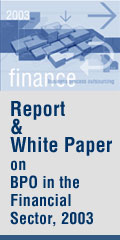|
|
IMF Sees Substantial Slowdown in Asia amid Global Turmoil, Urges Decisive Policy Actions
November 24, 2008:
Asia is facing the risk of a sharp slowdown as the global economy enters a major downturn, and decisive actions are warranted to maintain financial stability and support growth in the region, the International Monetary Fund (IMF) said today in its latest report on Asia. "Growth in Asia is expected to slow substantially along with the rest of the world, as exports weaken and spillovers from the global financial turmoil weigh on domestic activity," according to the Regional Economic Outlook (REO) for Asia and Pacific, which was released today.
While the baseline scenario for Asia sees recovery beginning in the second half of 2009, risks to the outlook are significantly larger than usual and tilted to the downside, the REO warned. A deeper and more protracted global slowdown than currently anticipated, combined with tighter international financial conditions from the ongoing global deleveraging, could have significant spillovers to the region through both exports and a range of financial channels. It remains unclear how domestic demand in the region would stand up to a sharp decline in export growth and tighter financial conditions, the report said. Despite Asia's generally strong fundamentals—including its substantial cushion in official reserves, improved macroeconomic policy frameworks and generally robust corporate balance sheets and banking systems—the region is "being rattled by the crisis due to its close trade and financial integration with the rest of the world, and any hope that the region would escape the crisis unscathed has by now evaporated."
In this uncertain environment, the REO calls for quick and decisive actions by policymakers in the region to respond to heightened financial risks and slowing domestic activity. First, their financial policies will need to focus on addressing spillovers from the global credit turmoil by safeguarding financial systems and maintaining orderly credit conditions. Second, with inflation projected to moderate in the near term, monetary policy in most countries has room to ease to stabilize financial conditions and address downside risks. Third, given progress in fiscal consolidation in recent years, many countries have room to implement fiscal stimulus to address downside risks to growth. For countries where fiscal sustainability is an issue, however, it would be important not to lose sight of the need for medium-term fiscal consolidation.
While in the past, inflation in the region could largely be traced back to domestic factors, global relative prices, notably of commodities, have been the driving force behind rising inflation in recent years. Despite the recent downturn , commodity prices are expected to remain high and volatile over the medium term, which would tend to create persistent gaps between core and headline inflation and pose new challenges for policymakers in facing trade-offs between output and inflation volatility. Going forward, these trends may require a careful consideration of monetary policy frameworks, in particular in commodity-importing countries.
Rapid demographic change in Asian countries and vastly different rates of aging across Asia are likely to have sizable effects on current accounts and capital flows—with capital tending to flow "uphill" from younger to older countries. Governments can ease the potentially difficult demographic transition by beginning to take policy measures now. For aging countries, this may involve an emphasis on pension and labor force reform. For younger countries, requiring substantial capital for their growing labor forces, enhancing financial intermediation, and boosting productivity will take center stage.
CLICK FOR SPECIAL SECTION ON GLOBAL FINANCIAL CRISIS
IMF Welcomes Comprehensive European Response to Financial Crisis
IMF sees heightened risks to global financial stability
Global banking industry to see more restructuring & consolidation
Indian Banking sector challenged by domestic, not global, factors
Indian banking system is stable and sound, says RBI Governor
Indian Government sets up group to assess liquidity requirements
US Financial Crisis to indirectly impact Asian banks
Limited impact on Asia-Pacific banks from Lehman bankruptcy
Broader Implications of Lehman bankruptcy and Merrill Lynch acquisition
Subprime Crisis: A Special
CLICK FOR MORE FEATURES & STORIES
|
|


|


